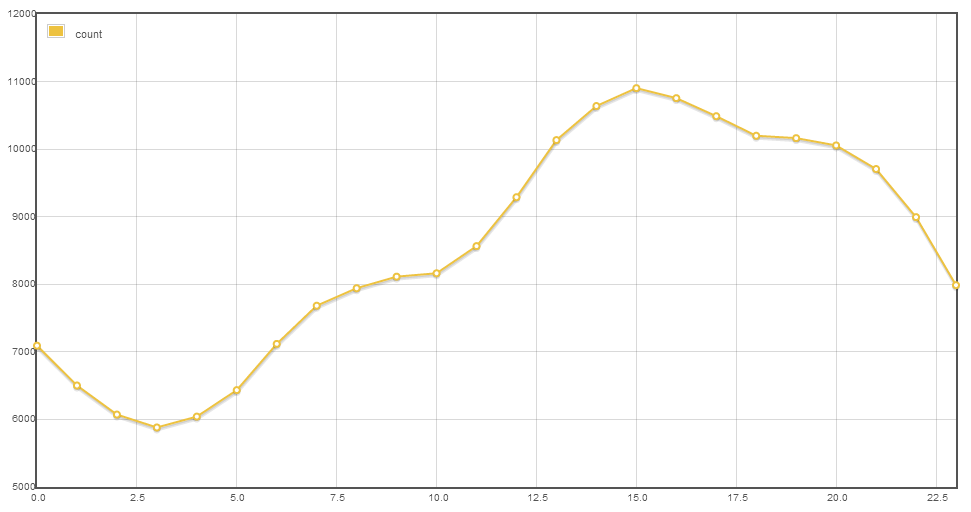tl;dr
1:30pm UTC to 2:30pm UTC might be the ideal time to hold a chat room event centered around moderation activity. (See the conclusion for a more qualified answer.)
Background
To make the event widely to users who review the close votes queue, an ideal solution might have come from being able to query for data on close vote reviews. However, that data isn't yet available, though possibly underway (see @Emracool's request and @Shog9's proposal). Data on close and reopen votes seemed a promising proxy, but I found not only that full timestamps weren't available on the Votes table, but also that this data stopped being available after June 25th, 2013 (due to internal refactoring).
So, what to use as a metric on activity?
@juergend, @rene, and @Dukeling all proposed some nice answers—measuring activity based on posts. @Dukeling also grouped his results by distinct users, which I thought was an insightful addition, since I'm looking to maximize exposure to active users, not just the busiest active users. I wasn't convinced though, about basing the metric on posts. Like @Dukeling commented himself, for example, higher rep users probably don't ask as many questions; and personally, while I agreed that answers and comments were good indicators of activity, I wasn't sure they'd correlate as well to moderation activity.
Suggested Edits
What about suggested edits (approvals and rejections)? After all, the suggested edits queue is the most popular of the queues (next to the close votes one), and it's strictly a moderation activity. Here's a plot of suggested edits approvals and rejections in 10-minute buckets:
SELECT
Time,
COUNT(*) Activity
FROM
(
SELECT
UserId,
DATEADD(mi, DATEPART(hh, v.CreationDate)*60
+ DATEPART(mi, v.CreationDate)/30*30, 0) AS Time
FROM SuggestedEditVotes v
INNER JOIN Users ON Users.Id = v.UserId
WHERE Users.Reputation >= 3000
) X
GROUP BY Time
ORDER BY Time
Suggested edits: approvals and rejections by >3k rep users per 30-minute window:
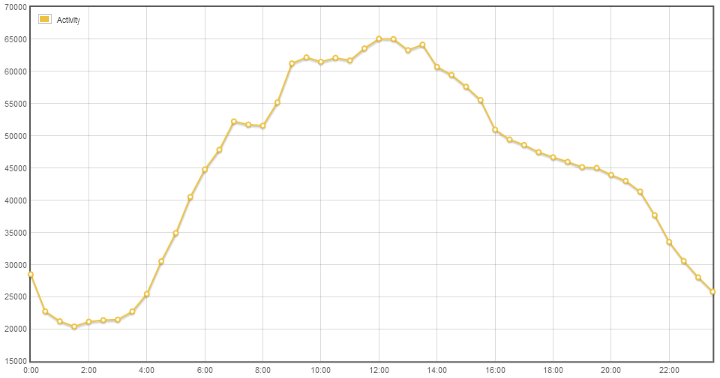
Interesting! Using suggested edits activity as a proxy for moderation activity, it appears the busiest window of time for moderation is between approximately 9:00am UTC and 2:00pm UTC!
At least two further adjustments can be made.
First, while doing some related research, I noticed a pattern: not only are there distinct slumps in moderation activity over the weekends, but hour-by-hour shapes on the weekend look different, too:
SELECT TOP 30
CAST(CreationDate AS DATE) AS Date,
MAX(Count(*)) OVER(PARTITION BY CAST(CreationDate AS DATE)) as Activity
FROM SuggestedEditVotes
GROUP BY CAST(CreationDate AS DATE)
ORDER BY Date DESC
Suggested edits: approvals and rejections per day:
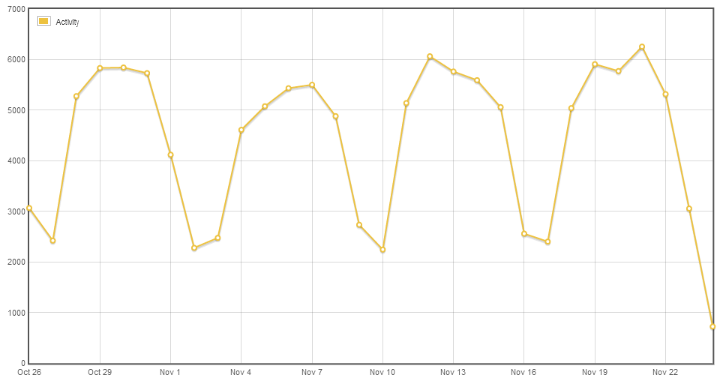
Code omitted due to length. See query here.
Suggested edits: approvals and rejections by >3k rep users per 30-minute window:
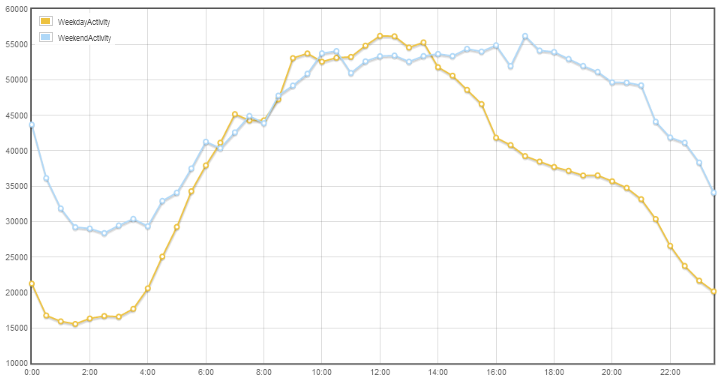
So, first, let's filter out the weekend data, since I only plan to run my event on weekdays:
Suggested edits: approvals and rejections by >3k rep users per 30-minute window (weekdays):
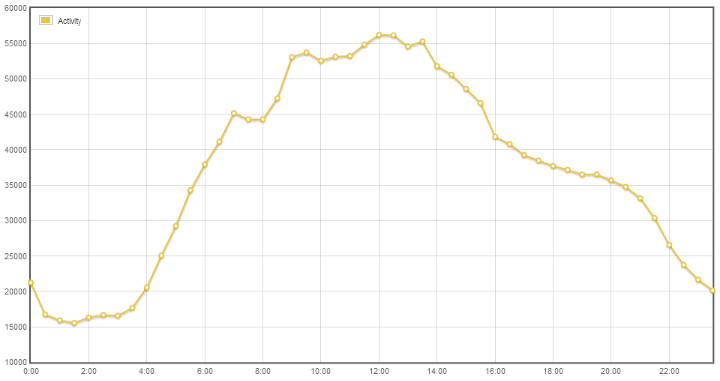
Second, as @Dukeling first demonstrated, let's count distinct users, rather than distinct actions:
Distinct >3k rep users approving and rejecting suggested edits per 30-minute window (weekdays):
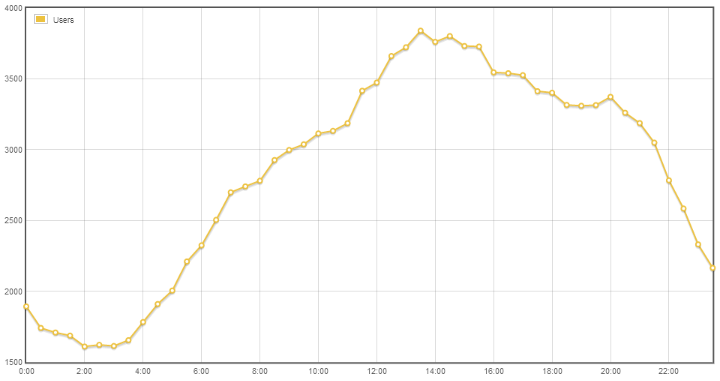
The queries are available here and here, respectively.
Conclusion
Analyzing only weekdays and the actions of users with >3k rep, it appears that
- 11:30 UTC to 12:30 UTC sees the greatest number of suggested edits approvals/rejections.
- 13:30 UTC to 14:30 UTC sees the greatest number of users approving/rejecting suggested edits.
Using suggested edits approvals and rejections as a proxy for moderation activity, these times seem ideal for holding a chat room event centered around moderation activity.

